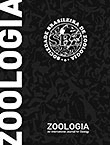
Zoologia
Scope & Guideline
Innovative Research for a Sustainable Future
Introduction
Aims and Scopes
- Biodiversity and Taxonomy:
The journal extensively covers the diversity and taxonomy of animal species, especially focusing on Brazilian fauna. It includes taxonomic reviews, new species descriptions, and comprehensive catalogs that contribute to the understanding of species richness and distribution. - Ecological Studies:
Zoologia publishes research that investigates ecological relationships and behaviors of various animal taxa, including habitat use, foraging strategies, and reproductive behaviors, providing insights into ecosystem functioning and species interactions. - Conservation and Environmental Impact:
The journal emphasizes studies that assess the impact of human activities on animal populations and their habitats, highlighting the importance of conservation efforts in maintaining biodiversity. - Phylogenetics and Evolutionary Biology:
Research articles often explore phylogenetic relationships and evolutionary patterns among species, contributing to the understanding of evolutionary processes and the historical context of biodiversity. - Molecular and Genetic Studies:
Zoologia encourages the use of molecular techniques to study genetic diversity, population structure, and phylogeography, enhancing the understanding of species' evolutionary history and adaptation.
Trending and Emerging
- Taxonomic Cataloging and Species Descriptions:
There is a strong trend towards comprehensive taxonomic cataloging, with numerous articles dedicated to documenting and describing new species, particularly within Brazilian fauna, highlighting the urgency of cataloging biodiversity. - Urban Ecology and Anthropogenic Impacts:
Recent publications increasingly address the effects of urbanization on wildlife, reflecting a growing interest in understanding how urban environments impact animal behavior, distribution, and conservation. - Conservation Genetics:
Emerging themes include studies on conservation genetics, where molecular techniques are applied to assess genetic diversity and inform conservation strategies, indicating a shift towards integrating genetics in conservation efforts. - Phylogeography and Distribution Modeling:
There is a noticeable increase in research focused on phylogeography and predictive modeling of species distributions, which is essential for understanding biodiversity patterns and informing conservation policies. - Parasite and Host Interactions:
Research examining the interactions between parasites and their hosts is gaining traction, reflecting a broader interest in understanding ecological relationships and the implications for biodiversity and public health.
Declining or Waning
- Behavioral Ecology of Non-Brazilian Species:
There has been a noticeable decrease in studies focusing on the behavioral ecology of animal species outside of Brazil, suggesting a shift towards more localized research that emphasizes Brazilian fauna. - Marine Biodiversity Studies:
Marine-related research, particularly studies focusing on the biodiversity of marine species, seems to be less frequent in recent publications, which may indicate a growing focus on terrestrial ecosystems. - Historical Taxonomy:
The frequency of articles discussing historical taxonomic classifications or reviews of older taxonomic literature has diminished, possibly as the field moves towards more innovative and molecular approaches. - Generalized Ecological Studies:
Research that broadly covers ecological principles without a specific focus on Brazilian species or ecosystems appears to be waning, as the journal increasingly prioritizes localized and specific ecological studies.
Similar Journals

BMC Zoology, published by BMC, is a distinguished open-access journal that has been advancing the field of zoological research since its inception in 2016. With an impressive Q2 ranking in both Animal Science and Zoology categories as of 2023, the journal occupies a significant position in the academic landscape, engaging a global readership dedicated to the exploration of animal biology. Based in the United Kingdom, BMC Zoology prides itself on providing a platform for innovative research, fostering collaboration among scientists, and facilitating access to high-quality scholarly articles. Researchers and practitioners in zoology can benefit from its extensive repository of articles that span various areas including conservation, ecology, and evolutionary biology. As an essential resource for scholars and students alike, BMC Zoology commits to enhancing the dissemination of knowledge in the zoological sciences through its open-access model, ensuring widespread access to cutting-edge research findings.
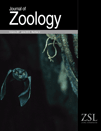
JOURNAL OF ZOOLOGY
Exploring the wonders of zoological sciences since 1830.JOURNAL OF ZOOLOGY, published by Wiley, stands as a premier scholarly journal in the fields of Animal Science and Zoology, renowned for its outstanding contributions to the knowledge of animal biology and ecology. With an impressive impact factor and a strong ranking in the Q1 category for Animal Science and Zoology, as well as Q2 for Ecology, Evolution, Behavior, and Systematics, the journal rigorously engages with both foundational research and groundbreaking discoveries since its inception in 1830. Located in Hoboken, New Jersey, this journal is dedicated to fostering the academic community's understanding of zoological sciences, providing access to important research that shapes wildlife conservation efforts and ecological studies. Although the journal does not currently offer open access options, it continues to attract significant attention, as evidenced by its strong Scopus rankings in related categories. Researchers, professionals, and students will find invaluable resources in the JOURNAL OF ZOOLOGY to advance their understanding of animal life and the ecological challenges it faces today.

Journal of Asia-Pacific Biodiversity
Bridging disciplines to enhance understanding of ecological dynamics.Journal of Asia-Pacific Biodiversity is an esteemed academic journal dedicated to advancing knowledge in the dynamic fields of biodiversity, ecology, and related biological sciences. Published by the NATL SCIENCE MUSEUM & KOREAN NATL ARBORETUM, this journal serves as a crucial platform for researchers and professionals seeking to explore and disseminate impactful findings pertaining to the Asia-Pacific region's rich biological diversity. With an E-ISSN of 2287-9544, the journal is indexed in leading databases, achieving a Q3 ranking across various categories in 2023, including Animal Science and Zoology, Ecology, Insect Science, and Plant Science. It strives to unite scientific research across disciplines, thus fostering a deeper understanding of ecological dynamics and conservation efforts within this vital region. The journal operates with an open access policy, ensuring that findings are widely available for widespread benefit, making it an essential resource for students, researchers, and environmental practitioners alike. Since its initiation in 2013 and continuing through 2024, the journal remains committed to delivering high-quality, peer-reviewed articles that contribute significantly to the global conversation on biodiversity and ecosystem sustainability.

Avian Biology Research
Pioneering insights into avian ecology and behavior.Avian Biology Research, published by SAGE PUBLICATIONS LTD, is a leading journal dedicated to advancing the study of avian species through high-quality, peer-reviewed research. With an ISSN of 1758-1559 and an E-ISSN of 1758-1567, this journal has established itself as a vital resource within the fields of Animal Science and Zoology, as well as Ecology, Evolution, Behavior, and Systematics. The journal is currently ranked Q3 in both categories according to the 2023 release of the category quartiles, and it contributes significantly to the global understanding of avian biology, including behavior, physiology, and conservation efforts. Positioned within the competitive landscape of the Scopus rankings, it finds itself amidst a diverse array of research, with medical and environmental implications. As an open-access journal, Avian Biology Research ensures greater accessibility to its contents, fostering disseminative opportunities for researchers, professionals, and students alike. With a publication window spanning from 2008 to 2024, it continues to be an invaluable platform for the dissemination and dialogue of avian research, thereby enlightening future inquiries and driving scientific advancements in this crucial area of biology.

REVUE SUISSE DE ZOOLOGIE
Unveiling Nature's Secrets Through ResearchThe REVUE SUISSE DE ZOOLOGIE, published by the esteemed MUSEUM HISTOIRE NATURELLE, is a premier journal dedicated to advancing the field of zoology and its related disciplines. Established in 1964, this Swiss journal has consistently provided a platform for high-quality research in the areas of ecology, evolution, behavior, and systematics, currently holding a commendable Q3 ranking in these categories for 2023. With a rich publication history spanning from 1964 to 1979 and then from 1994 to the present, it serves not only as a significant repository of knowledge but also as a crucial resource for researchers, professionals, and students alike. While the journal is not open access, it remains a vital tool for those wishing to stay at the forefront of zoological research and innovation. Its commitment to disseminating groundbreaking studies makes it an indispensable asset for academic institutions and researchers globally, ensuring that pivotal findings in zoology continue to gain visibility and impact.
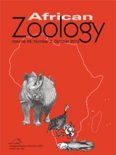
AFRICAN ZOOLOGY
Exploring Africa's Rich BiodiversityAFRICAN ZOOLOGY, published by Taylor & Francis Ltd, stands as a significant journal in the realm of Animal Science and Zoology, with a proud history dating back to 1996 and slated to continue until 2024. With an ISSN of 1562-7020 and E-ISSN 2224-073X, this journal provides a reputable platform for researchers and practitioners dedicated to the study of animal biology across the African continent. It has been recognized for its quality scholarship, evidenced by its Q3 categorization in the 2023 Scopus quartile rankings and an impressive rank of #182 out of 490 within its field. As an open-access journal, it facilitates the dissemination of vital research findings and promotes broader accessibility, catering to a diverse audience of professionals, scholars, and students alike. The journal aims to enhance our understanding of wildlife, conservation, and ecosystem dynamics in Africa, fostering collaborations that address critical ecological challenges. For researchers and enthusiasts keen on contributing to and staying informed about advancements in zoological science, AFRICAN ZOOLOGY is an essential resource that enriches the global discourse on biodiversity and conservation efforts.

ACTA ZOOLOGICA BULGARICA
Pioneering Discoveries in Ecology and EvolutionACTA ZOOLOGICA BULGARICA is a prominent academic journal dedicated to advancing knowledge in the fields of Animal Science, Zoology, Aquatic Science, Ecology, Evolution, Behavior, and Systematics. Published by the Institute of Zoology, Bulgarian Academy of Sciences, this journal serves as an invaluable platform for researchers, professionals, and students to disseminate their findings and engage with contemporary issues in biodiversity and ecology. With an established history since its convergence in 2010 and an ongoing publication schedule through to 2024, the journal holds a Q4 category ranking in multiple disciplines, highlighting its role in fostering scholarly communication in these areas despite its recent entry into Scopus-indexed rankings. Although currently not an open-access journal, ACTA ZOOLOGICA BULGARICA remains a key resource for those interested in the latest research and developments, particularly within the ecological and zoological landscapes of Europe and beyond.
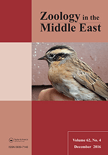
ZOOLOGY IN THE MIDDLE EAST
Shedding Light on the Region's Zoological TreasuresZoology in the Middle East, published by Taylor & Francis Ltd, is a pivotal journal dedicated to advancing the field of zoological research with a distinct focus on the rich and diverse fauna of the Middle Eastern region. With its ISSN of 0939-7140 and an E-ISSN of 2326-2680, this journal has successfully carved out a niche for itself since its inception in 1986, covering topics of significant relevance to animal science and zoology, as evidenced by its Q2 ranking in the 2023 category quartiles. Although it operates as a subscription-based journal, it aims to disseminate high-quality research articles, reviews, and case studies that contribute to the understanding of animal biodiversity and conservation in the Middle East. With a Scopus ranking placing it in the 38th percentile of the agricultural and biological sciences category, Zoology in the Middle East serves as an essential resource for researchers, professionals, and students who seek to deepen their knowledge and appreciation of the region's zoological heritage. Scholarly contributions to this journal not only enhance scientific discourse but also inform conservation strategies and policy-making in an area that is critical to global biodiversity.
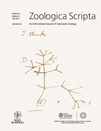
ZOOLOGICA SCRIPTA
Unveiling the mysteries of the animal kingdom.Zoologica Scripta, published by Wiley, stands as a distinguished journal within the fields of Animal Science and Zoology, Ecology, Evolution, Behavior and Systematics, Genetics, and Molecular Biology. With its inception dating back to 1971 and a convergence year extending to 2024, this journal consistently provides a platform for high-quality research, earning a Q1 ranking in two key categories and solid performance in additional fields, as evidenced by its significant Scopus rankings and impressive percentiles. Notably, it ranks 36 out of 490 journals in Animal Science and Zoology, placing it in the 92nd percentile. While Zoologica Scripta operates under a traditional access model, its rigorous peer-review process ensures that only the most impactful studies make their way into its pages. With a focus on advancing our understanding of biodiversity and evolutionary processes, this journal is indispensable for researchers, professionals, and students committed to the ongoing exploration of animal sciences and ecological studies.

SPIXIANA
Unveiling the Secrets of Animal BiologySPIXIANA is a distinguished journal dedicated to the fields of animal science and zoology, published by VERLAG DR FRIEDRICH PFEIL in Germany. With the ISSN 0341-8391, it has been contributing to the scientific community since its inception, with volumes converging from 2008 to 2024. Although currently listed in the Q4 quartile of the 2023 category rankings for Animal Science and Zoology, it provides a vital platform for researchers and professionals to disseminate significant findings in the field. Despite being unindexed in open access, SPIXIANA ensures that vital research reaches its audience, enhancing academic discourse and furthering our understanding of zoological sciences. Its commitment to sharing rigorous scientific research make it an important resource for anyone passionate about animal biology and conservation.